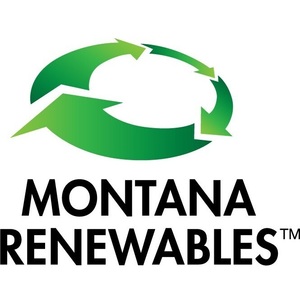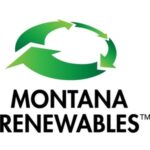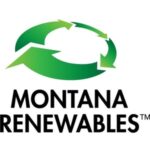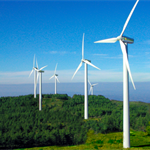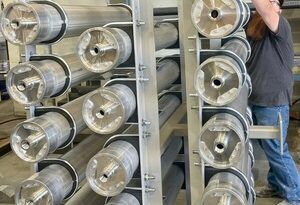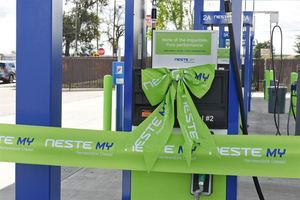Montana Renewables celebrates first receipts of camelina oil
Energy Disrupter
ADVERTISEMENT
Montana Renewables LLC, a subsidiary of Calumet Specialty Products Partners LP, on Sept. 18 hosted an event to celebrate the first receipts of camelina oil into its biorefinery in Great Falls, Montana. The facility produces renewable diesel and sustainable aviation fuel (SAF).
According to Calumet, representatives of the state, county and city governments attended the event, along with suppliers and supporters of rural agricultural development.
The MRL biorefinery consumes more than 1.5 billion pounds per year of feedstocks, including rendering wastes and seeds oils. During a second quarter earnings call held Aug. 4, Calumet CEO Todd Borgmann indicated the MRL facility was taking action to expand its feedstock sourcing and had just placed its first order for camelina. The facility is now celebrating the initial deliveries of that new feedstock.
“We are pleased to add 2023 USA produced Camelina Oil to our existing feeds which already include canola oil, corn oil and tallow,” said Bruce Fleming, CEO of MRL. “Today’s deliveries further demonstrate Montana Renewables’ feedstock advantage. While our ARA pre-treater technology provides the ability to run feed from anywhere in the world, Camelina is indigenous to Montana. The low carbon intensity and non-food nature of this oil makes Camelina an exciting addition to our already competitively advantaged MRL platform. And by providing a market in Montana we are creating long term benefits for Montana farm and ranch producers who grow most of the country’s camelina today.”
Fleming continued by saying “MRL already supports 1 to 2 million acres of farm and ranch activity in canola, corn and cattle, but the associated seed crushing and meat packing occurs out of State. Our vision is to attract seed crushing and meat packing facilities to Montana to further spread the benefits of lower carbon emissions, lower freight costs, and higher agricultural activity.”
Camelina is an annual or winter annual crop that is part of the mustard family and contains 30-40 percent oil content. The short season crop takes only 85 to 100 days to mature and requires little rain. Winter annual camelina can be grown as a fall-seed cover crop on land used to produce other crops, such as soybeans or corn.
Camelina has been an eligible biofuel feedstock under the Renewable Fuel Standard since 2013. The USDA’s Risk Management Agency in June 2023 expanded crop insurance for camelina in direct response to the anticipated increase in demand for biofuel production.
Calumet’s MRL facility is newly operational. The company in February 2021 announced plans to produce renewable diesel at its petroleum refinery in Great Falls by reconfiguring its oversized hydrocracker to process renewable feedstocks, producing renewable diesel and SAF.
Calumet in December 2022 reported the biorefinery had generated a full month of on-spec renewable diesel and had commenced rail shipments of the product. At that time, the facility had the capacity to produce 6,000 barrels per day.
The biorefinery’s renewable hydrogen plant was commissioned during the first quarter of 2023. Feedstock pretreatment and SAF units were brough online shortly after, in April. The renewable hydrogen, feedstock pretreatment and SAF systems boosted capacity to approximately 12,000 barrels per day. MRL in May celebrated the first production and initial shipments of SAF.
The MRL facility has estimated initial SAF production capacity at 2,000 to 4,000 barrels per day. The company is currently considering a shift to what it calls “max SAF” which would expand total renewables capacity to 18,000 barrels per day, including 15,000 barrels per day of SAF.

